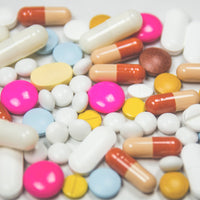Today we're talking about addressing the fears of ADHD treatment. As parent trying to find a treatment plan for a child with ADHD, it sometimes might feel like navigating a minefield without a metal detector or map to guide your way. Where do you turn? Do you go to your right down the road towards natural therapies for ADHD or take the well beaten path towards prescribed stimulants? Who can you turn to to help you make this choice?
In order to successfully navigate the minefield of ADHD treatment, it's important to recognize some of the warning signs along the way. We will examine some of the common fears related to ADHD treatment, and help you as the parent learn to discern the useful information from the not so useful so that you can find the right path for your family.
Warning Sign #1: Don’t Believe Everything You Hear
We are bombarded by information everyday from every angle. A lot of this information is confusing, misleading, or just plain unhelpful. When thinking of a right ADHD treatment, there's a lot of information to sort through. Just remember to not believe everything you hear.
There's a lot of information because people have a lot of questions.
Take Omega-3's for ADD as an example. Are they helpful? Can they be safe? Are they kosher?
When looking for answers, you'll run into questions that you never even thought about. Such as: if I have a shellfish allergy, can I even take Omega-3s? The answer to that one is yes. The shellfish allergy is actually to a protein, it’s not to the Omega-3 so you’re safe.
There is a lot of information out there on Omega-3s and other treatment options for ADHD. Be patient in reviewing and sorting through it all. Much of it can be helpful if you take the time to search through it. Just don't believe everything you hear. Like that if you have a shellfish allergy, Omega-3's aren't for you. Because they most likely still are.
Warning Sign #2: Don’t Trust Everything You Read Online
The internet is a wonderful resource. Parents can be well informed about ADHD treatment because most people can get on the internet and do a lot of searches. The problem is like many things with the internet is that it is difficult to tell the good news from the fake news.
So much of what pops up on the screen is agenda driven. It’s marketing driven rather than scientifically driven. Particularly when you get out of the realm of the regulated medicines. What ends up happening is that parents are generally aware but they don’t have clarity.
Rather they are confused about what they have read and who they can trust. Ultimately, the information available is sometimes harmful to finding a solution.
Just take the example of Omega-3s. Many times parents don’t know how much to take. They don’t know which types to use. They just know that there’s maybe something natural that can help.
A lot of this confusion can be traced back to where people are getting their information. FastBraiin is one resource to help provide clarity, like on Omega-3s. Lean on resources that base their information in scientific studies and proven resources. Don't trust everything that turns up in a Google search.
Warning Sign #3: Don’t Assume Stimulants Are Always the Best Solution
In finding an ADHD treatment that works for you, just remember you have options. For instance, when starting to look for a workable ADHD treatment, Omega-3s can actually be the safest place to start.
Stimulant solutions such as Adderall might be well known, but they might not necessarily be the best or most cost effective solution. First of all, many stimulants come with drawbacks or side effects.
And then of course there is the cost issue. Many prescribed stimulants, such as Adderall, are typically not covered by health insurance plans. In those cases, many patients have to depend on using coupons. Patients can sample stimulants but without coupons, some people can’t afford them.
Alternatively, there are generics. You can get generic Ritalin, which would be substantially cheaper, but once again, you’re on a stimulant. The cost might be higher and the result might not necessarily be what you are looking for. The good news is that you don't have to assume stimulants are the best solution and you can try other options.
Follow the Signs and Find the ADHD Treatment for You
There's a lot of misinformation out there, in person and online. This can be discouraging, but it doesn't have to remain that way. There is an ADHD treatment that can work for you. Just remember the warning signs in researching and finding that right solution.




